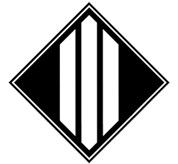Aguirre: Professionals, enter the Ring

I was inspired to exteriorize journalistically by an excellent text by Bartosz Biernat titled „Poison”, and more specifically its ending. In it, the author writes the following words: “Nationalists are mentally and ideologically ready to pick up their gloves. And then there will be only one thing left: KO.” Confronted with such radically expressed optimism, I felt the need for a polemical retort. I understand, of course, the difference between an analytical article and a propaganda article written „to lift up hearts,” but this is a difference in style and intensity, not in conclusions. When the analysis says „it’s alright,” the propaganda says, „it’s great.” Meanwhile, in my opinion, it is neither alright, nor great. It’s so-so at most.
A lot has been written about the current state of Polish nationalism. A whole lot. Thousands of diagnoses, and no reasonable proposition. Homegrown writing done in good faith – the thought of hundreds of young activists itching with excitement over their keyboards and full of naive hopes that their article, manifesto or appeal will be the source of renewal brings a tear to the eyes. It’s just that good faith alone does not suffice. Salomon cannot pour out of an empty vessel. In order to give, you must have. To explain, you yourself have to understand, and not be a child in the fog. In any case, if this text does not contribute anything constructive, it will be no tragedy, on the contrary – the continuation of what is and the quiet status quo will remain.
So what is the problem with Polish nationalism? The same as with the Polish nation: it has no head. This head was cut off several generations ago, and no conditions were created for it to grow back. A body without a head is obviously not a happy situation. All it can offer, are agonizing convulsions, even those prolonged beyond measure. The head of a nation as well as a political movement is its elite.
Polish nationalism does not have an elite and it does not want to have one. Recently, on the portal Autonom.pl I read a bizarre text entitled „The Necessity of Radicalization in the Nationalist Movement„, the author of which tried to show that building an elite is contrary to the community spirit inherent in nationalism and to radicalism as such. It is difficult to argue with such a thesis at all, suffice it to say that even the most fanatical French revolutionaries and Bolsheviks recognized the need for committees and commissars.
I can guess however, where these views come from. It is hard to understand something that you have only read about, but never seen it with your eyes. That which we call the elite in Poland today, does not fulfill its functional dimension and constitutes its polar opposite. The Polish political, business and cultural „elite” is not the head of the national organism. It is something else, alien and hostile: a transplant or tumour, sucking the life force out of the nation. But let’s not reinvent the wheel and beat around the bush where the matter is obvious.
The national movement, as it is known, was a grassroots, urban movement in post-communist Poland. Apart from a few living political fossils, it was composed mostly of young and lowly placed people on the social ladder, who joined the movement due to a subculture. Not so long ago, you could read on national forums the declarations of young men who „want to start their adventure with nationalism by buying heavy shoes”, and therefore asked for advice about footwear choices. The changes that have taken place in the last decade are unfortunately only a change in decoration. „Fighting Poland” and NSZ crosses supersede the „neo-fascist” symbolism and surplus jackets have given way to more or less designer „patriotic clothing”. I will leave open the question of whether cotton can have feelings and views. From an aesthetic point of view, this may be some progress, but looking deeper, we will find no reason to be satisfied. The issue is not some or other dress code. The issue is any „dress code” and what is behind it, namely building an identity of a movement on third-rate gadgets and the subcultural need to distinguish oneself from the rest of society. A popular pastime still happens to be urban chases after Antifa (an even more niche game) – a sad reflection of the atmosphere of the 1930s, when street violence was an expression of a clash between great political movements, avant-garde ideologies and powerful decision-making centers. Everyone is looking for opponents according to their needs. The main force of the movement is still the same energy of inexperienced juveniles. They are valuable as a whole. It is people of value as individuals that are lacking.
If anyone thinks that the author has just joined the “suit and tie” trend, they are mistaken. The nation and nationalism need hooded boys charged with negative energy. They need brawlers, football hools and bruisers ready for anything. People who will willingly jump into the fray as soon as the prospect of fighting arises, because they have little to lose and much to win. The System is a brutal and ruthless force, devoid of moral or common sense constraints in achieving its goals. That’s why, what it fears most, is also strength – grinning teeth and clenched fists. The pacification of the street would be its great success. It is the possibility of an unpredictable and desperate reaction of the street that marks the limit of the System’s actions.
And yet the hooded boys will not win the revolution. The economically, organisationally and intellectually weak are exposed to the System’s cunning foxes: skilful propagandists and licensed authorities. Their dedication and will to fight finds no support in any opinion-forming milieu and in no material support base. The left hates them, the right is afraid. Nobody will stand up for them, but there will be no shortage of accusers. They’ll be like an army without supplies: a day of combat, and then either home or to the dust.
A pissed off youth is matter for upheaval, but form is still needed. To make soup, we need a pot. To keep these people under control, to guide them, provide for them and protect them, a nationalist elite is needed.
The consequence of the lack of elites is also the lack of a political program, which is by no means identical to the political idea, but constitutes another, more detailed level of the implementation of ideological assumptions – a tool for their implementation. The political program transforms thoughts formulated on a general, ideological or even metaphysical level into concrete space and time.It contains an analysis of conditions, sets out tasks, measures and perspective for their implementationIt is based on a strong intellectual background and refers to concrete political and economic visions. At least, that’s how it should be, but unfortunately … „Our Aim – A Great Poland” is a beautiful slogan, but equipping activists with only such „arguments” condemns them to helplessness in absolutely every public matter that life brings. Programs and strategies are, of course, variable and relative elements, so it is impossible to create a single „universal” that will be so ingenious, that it will miraculously suddenly push things forward. What is needed is a critical intellectual mass of people – a milieu where, based upon solid ideological foundations, directions of development will be indicated on an ongoing basis.
Let us not delude ourselves, however, that a thus defined elite will arise thanks to the application of a „homegrown method”. In the 21st century, no one who hasn’t had much to do with economic knowledge can create a realistic economic concept. Doboszyński and Leon XIII as bedtime reading after a day at the factory are not enough. The same applies to other areas, such as philosophy, law, culture, youth education, defense. How can you still talk about defending borders or identifying with the Cursed Soldiers without having received the most basic military training? How can one talk about national culture without knowing anything at all as to what is happening to world culture? And so on. We need professionalization and specialization. We need leaders and experts in every area of life, not hastily trained dilettantes. Of course, professionalism does not have to, indeed – cannot be – some reality external to the political movement – it should become its feature. It is not the professors who have to like nationalists. It is the nationalists who must become professors. It is, of course, a long-term process, yet indispensable for carrying out real qualitative changes.
In essence, it’s about something even more general, which is to function soberly and efficiently in reality, not in the world of dreams and retrospectives. If we misunderstand Evola’s slogan of rebellion against the modern world as a call to rebellion against modernity, we will soon get confused because all we have is the present. We need less empty words and more real knowledge and skills, more humble curiosity and an attempt to understand the world, and not repeat with a wise face the same litanies that someone wrote in the 1930s. We do not have to practice escapism, because it is we who constitute and create reality, not the System, which is only a devilish wart upon it.
Some of what I am writing about is already happening. I perceive the emergence of Trzecia Droga (Third Way) as an element of a broad opening of nationalism and an exit from the intellectual and reputational ghetto. Only in this way can nationalism really become ready to enter the ring in the future.
The above translation is the property of 3droga.pl. Copying it or modifying it without the permission of the editors is prohibited.
Translation: Michał Szymański
Graphic design: Resistance Arts


